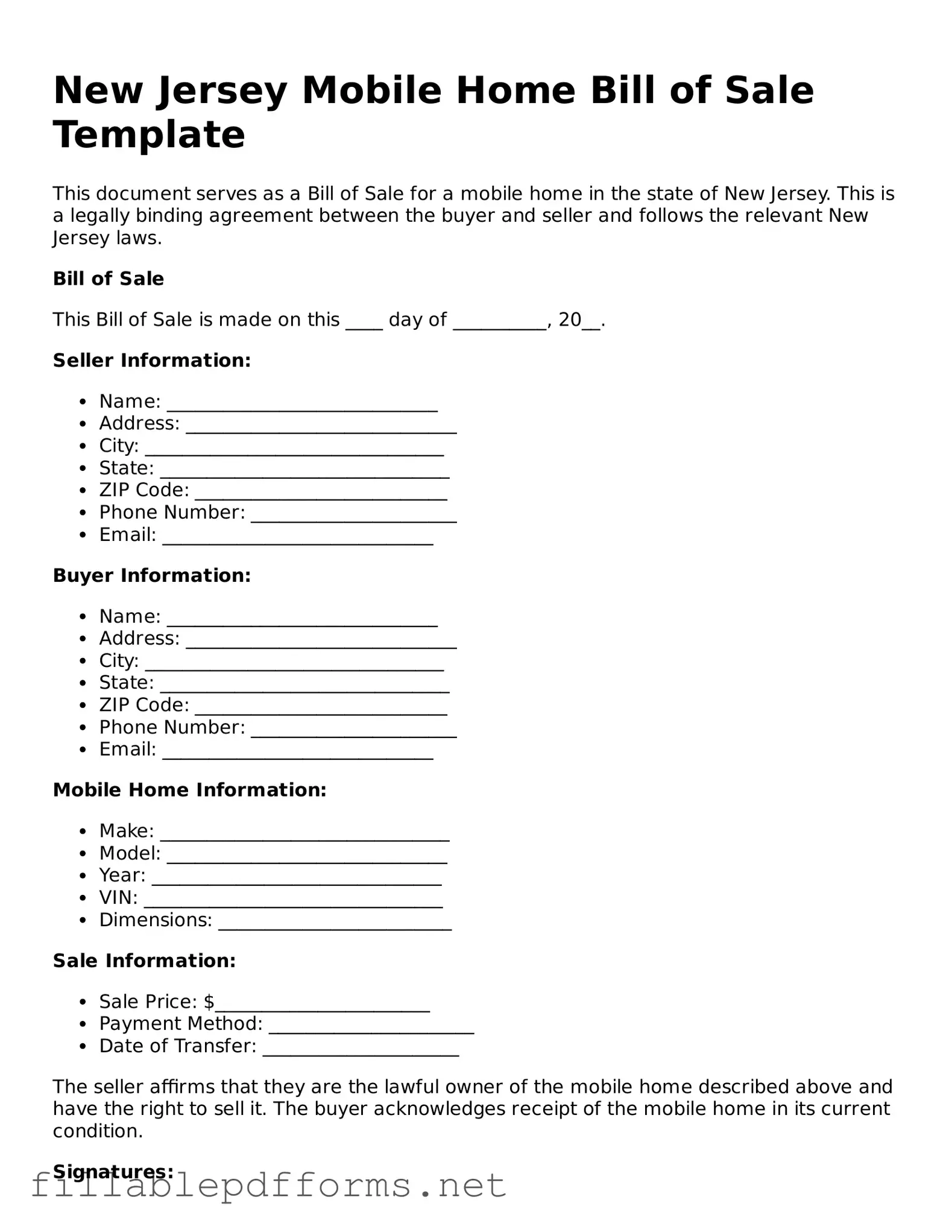Attorney-Verified Mobile Home Bill of Sale Form for New Jersey State
The New Jersey Mobile Home Bill of Sale is a legal document used to transfer ownership of a mobile home from one party to another. This form outlines essential details such as the buyer's and seller's information, the mobile home's description, and the agreed-upon sale price. Understanding this form is crucial for ensuring a smooth transaction and protecting both parties' rights.
Launch Editor Here

Attorney-Verified Mobile Home Bill of Sale Form for New Jersey State
Launch Editor Here

Launch Editor Here
or
▼ Mobile Home Bill of Sale PDF
Almost there — finish the form
Complete Mobile Home Bill of Sale online fast — no printing, no scanning.